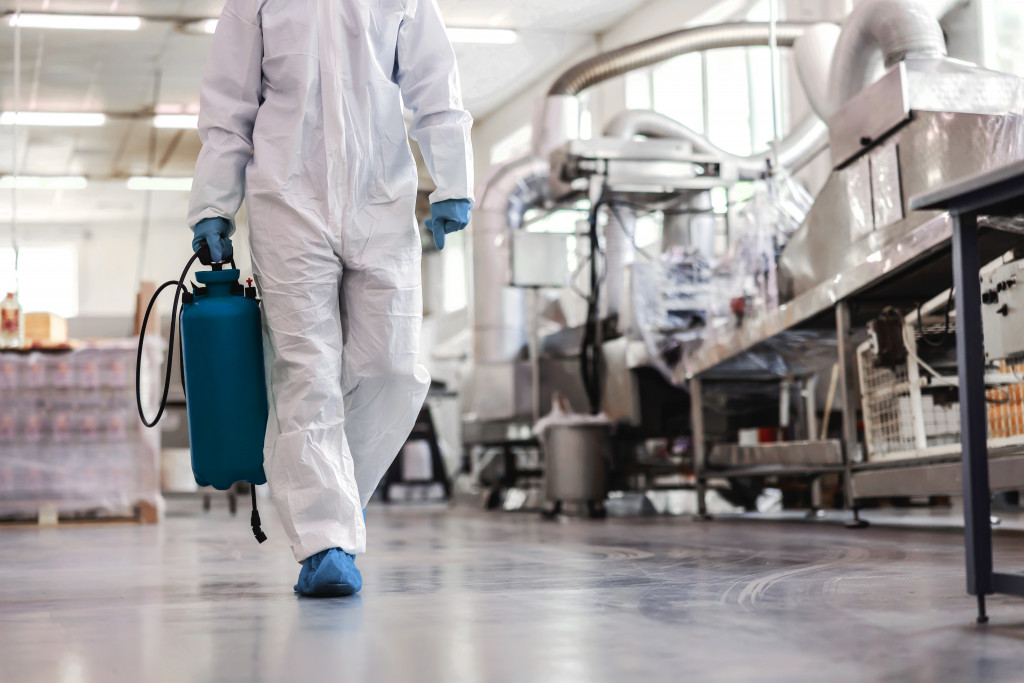Whether you run a small business or a large corporation, safety should always be a top priority. Due to heavy machinery and hazardous materials, industrial manufacturing businesses are susceptible to accidents and injuries. A single incident can result not only in property damage but also in severe injury or even death.
Here are a few essential safety tips for industrial manufacturing businesses to follow. Implementing these safety standards will help protect your employees, improve morale, and maintain a healthy work environment:
Establish a clear hierarchy of responsibility
In any industrial manufacturing business, safety is of the utmost importance. There are many potential hazards present in any factory setting, and it is crucial that everyone who works in the facility is aware of the dangers and knows what to do in case of an accident. To ensure the safety of your industrial manufacturing business, it is essential to establish a clear hierarchy of responsibility when it comes to safety procedures.
The management team should be responsible for developing and implementing safety policies. At the same time, the employees should be accountable for following those policies. Clear lines of communication should be established so that everyone knows who to go to with any safety concerns. By establishing a clear hierarchy of responsibility, you can help to ensure the safety of your industrial manufacturing business.
Inspect all machinery regularly and perform maintenance as needed
To ensure the safety of your industrial manufacturing business, it’s essential to inspect all machinery regularly and perform maintenance as needed. Safety should be a top priority in any manufacturing business, as accidents can quickly happen if machinery is not maintained correctly. It’s important to know exactly what risks are associated with your equipment to identify the proper assessment needed.
For example, if your operation includes the use of industrial piping, you’ll need to ensure they meet ASME hydrostatic testing requirements. The purpose of this test is to ensure that the vessel can safely contain the internal pressure it was designed for. Hydrostatic testing involves filling the vessel with water and pressurizing it to a level slightly above the maximum design pressure. The vessel is then inspected for leaks, deformations, or other damage. If no problems are found, the vessel is then ready for use. Hydrostatic testing is a critical safety step in the manufacturing process.
If you find any problems, fix them immediately – it’s better to be safe than sorry. Also, keep up with regular maintenance tasks, such as lubricating moving parts and cleaning debris off of machines. These precautions can help prevent accidents and keep your industrial manufacturing business running smoothly.
Provide your employees with the proper safety equipment
If you want to ensure the safety of your industrial manufacturing business, you need to provide your employees with the proper safety equipment. This includes items such as gloves, goggles, and earplugs. While some of this equipment may seem like a minor expense, it can make a big difference in the event of an accident.
For example, if an employee is working with hazardous material, a pair of gloves could mean the difference between minor skin irritation and a serious chemical burn. Likewise, if an employee is operating loud machinery, a couple of earplugs could protect them from long-term hearing damage.
Implement safe work practices

There are several steps you can implement safe work practices to ensure the safety of your industrial manufacturing business. First, it is important to create a safe work environment by implementing proper health and safety protocols. This includes ensuring that all workers have access to adequate PPE and training them on how to safely use equipment and handle materials.
Additionally it would be best if you had a comprehensive emergency plan in case of accidents or other unforeseen events. Finally, staying current on industry best practices and regulations is also essential. These steps can help create a safe and productive work environment for your employees.
Keep the work areas clean and tidy at all times
In any industrial setting, it’s crucial to keep the work areas clean and tidy. A well-organized workspace is a safe workspace, and that helps to prevent accidents from happening. It also helps to keep employees productive and efficient. A cluttered work area can be dangerous and lead to lost or damaged equipment.
Furthermore, a messy workspace can hinder communication and collaboration. To ensure the safety of your industrial manufacturing business, keeping the work areas clean and tidy is essential.
These safety tips can help create a safe and healthy workplace for your employees. So remember to establish a clear hierarchy of responsibilities, inspect all machinery regularly and perform maintenance as needed, provide your employees with the proper safety equipment, implement safe work practices, and keep the work areas clean and tidy. Implementing these standards will improve morale, increase productivity, and reduce the chances of accidents and injuries.

